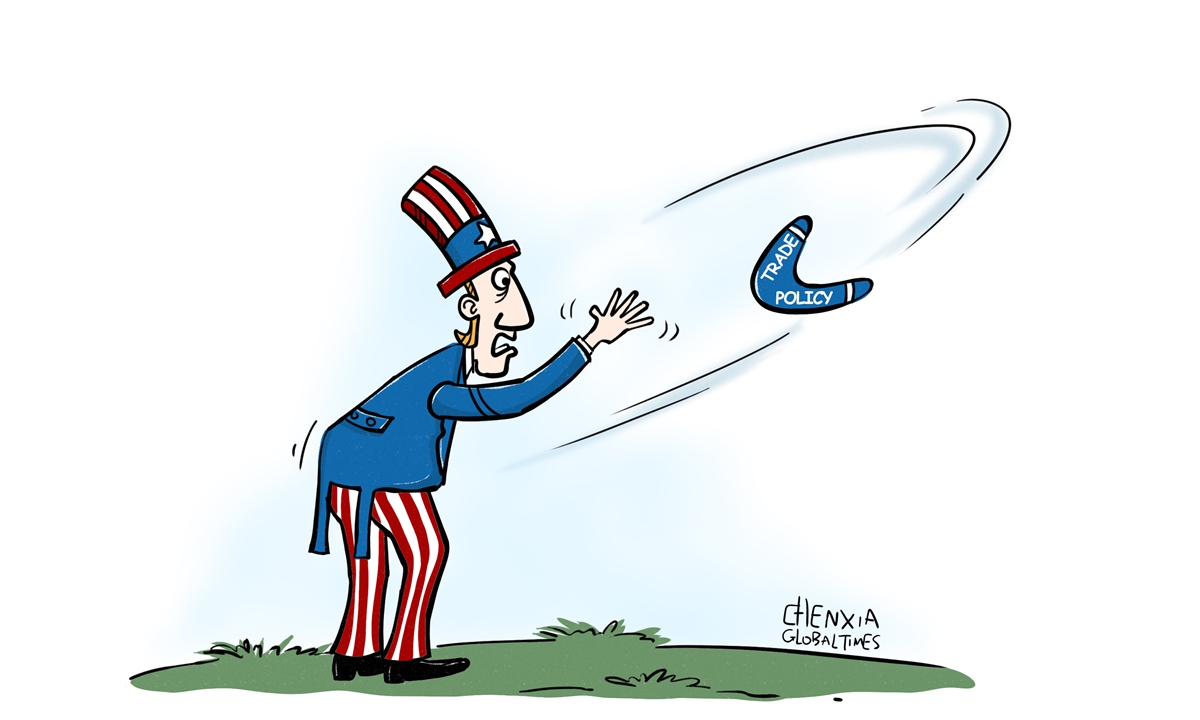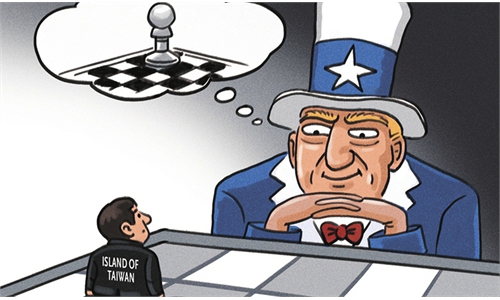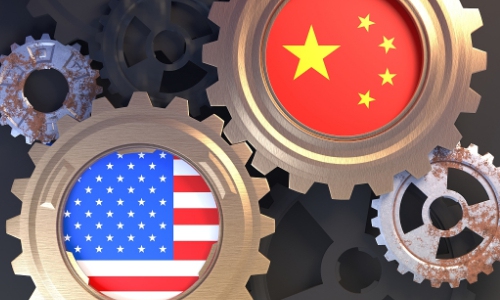
Illustration: Chen Xia/Global Times
Over the past year, the Biden administration's economic and trade policies toward China have not only failed to make an overdue correction to the Trump administration's tariff war, but have also gone further in terms of export control and investment flow restrictions. The Biden administration has escalated its economic war against China to a new level and expanded its crackdown and restrictions from trade to technology, and financial sectors.
From the investment ban on dozens of Chinese companies in June to broader chip export controls in October, all the decisions of the Biden administration have been irrational and erratic. While suppressing China's technological and economic development, these measures also harm the US economy, which actually shows that the US has lost its head in terms of economic and trade decisions with China.
The so-called industrial decoupling that the US is pushing is theoretically untenable and hard to implement. Although the US may feel that it holds the upper hand over China in competition with all its suppression tactics, it may in fact win nothing in terms of actual economic interests.
In the US, where toughness toward China has increasingly become politically correct, no one can point out that policy toward China has deviated from the correct direction, and no one dares to criticize these extreme and irrational policies.
Although US Trade Representative Katherine Tai has stated repeatedly that Trump tariffs offer "a significant piece of leverage" against China, the US' repeated extension of tariff exemption exposed the fact that as surging inflation severely impacts the livelihoods of American households, the additional tariffs on Chinese goods have been aggravating the burden on US consumers.
The US cutting off and restricting cooperation with China in the field of science and technology is also backfiring against the US economy itself. When the US attempts to contain China's technological development, it should at least calculate the cost and the results. Even if the US curbs China's scientific and technological development at all costs, it will not be able to limit China's progress in key technological fields in the end.
The US' increasing trade protectionism, unilateralism and abuse of the concept of national security all show that the US will do whatever it takes to maintain its hegemony. The US' approach is obviously not conducive to the country's post-COVID recovery.
Judging from the current actual situation of the US economy, the real problem is not its macro policies, but the key lies in its restrictions on trade and technological cooperation with China. The US' approach to containing China actually has a deeper and wider impact on the US economy, but the US side has yet to realize this. It still blames many of its economic problems on energy price increases and inflation.
January 1 is the anniversary of the establishment of diplomatic relations between China and the US. At the beginning of the new year, under the expectation that the global economy and trade will face headwinds, it is time for the US trade policy toward China to return to a rational footing.
Classical economic and trade theories such as free trade and fair competition are supported by solid theoretical and factual foundations. The US side should respect these economic laws, instead of blindly denying these economic laws in order to achieve the purpose of containing China. There is indeed competition in economic and technological development between China and the US, but the US must rationally view and correctly handle this competition.
While following the "political correctness," US policymakers should at least consider the actual costs and results of its trade policy toward China. If the US continues to go further and further in the wrong direction toward "decoupling" and protectionism, it will only escalate its tensions in the economic and trade relations with China and further impact the US economy.
The author is a vice chairman of the China Society for World Trade Organization Studies in Beijing. bizopinion@globaltimes.com.cn



